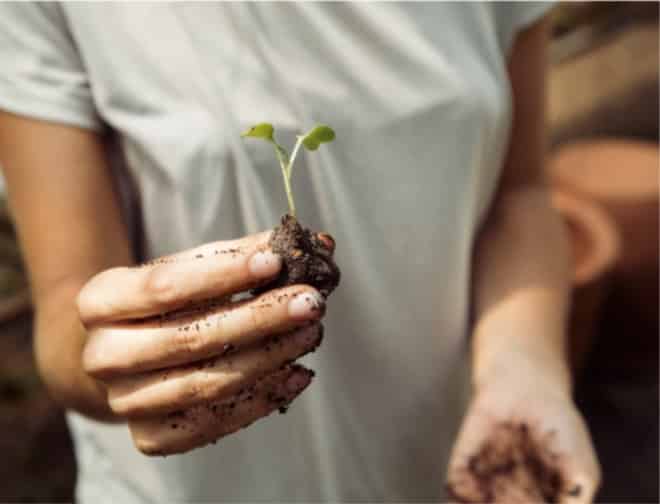Join us in Bali this February with Penny Livingston-Stark to learn the fundamentals of permaculture design in one of the most interesting permaculture settings in the world. Meet inspiring change makers and environmental entrepreneurs. Join a growing movement of people dedicated to implementing positive solutions that provide for people and the planet.
WHAT YOU WILL LEARN:
Permaculture provides an effective solution-based design system to address today’s biggest challenges. Based on a set of principles and natural patterning, permaculture design is applicable in all climate conditions; in both urban and rural situations.
This is a 2 week certified Permaculture Design Course that includes an introduction to permaculture, workshops on soil fertility, water harvesting, agroforestry, home gardening, bamboo & natural building, and permaculture design. You will be given a personalized tour of Green School and Green Village and learn how the Green School is pioneering education using systems thinking, experiential and nature education. You will learn from the bamboo architects and builders who were involved in building the school and some of the most cutting edge natural bamboo homes in the world. You will learn different ecological food production systems and how to follow the design process to create onsite designs. Learning will be facilitated with a combination of classroom lectures, tours, excursions, discussions and hands-on workshops.
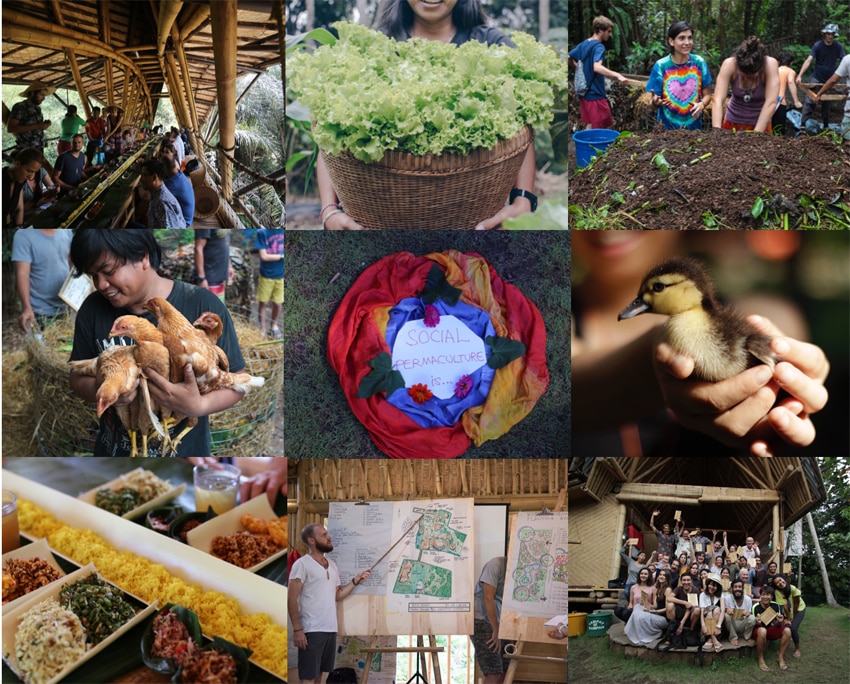
This certified 72 hour Permaculture Design Curriculum includes:
Permaculture principles and ethics
Increased understanding on how to read a landscape and make informed design decisions including natural pattern recognition and application
Water harvesting and earthworks
Site analysis (Sector Analysis)
Site planning and layout (zoning)
Climate and micro-climate strategies- Tropical, Temperate, Dryland and Humid Climates
Mapping
Land access
Community development
Plant knowledge and plant guild design
Food forests and agroforestry
Soil carbon sequestration and biochar
Soil building and sheet mulching
The design process, principles, strategies, and techniques
Pond management and ecology
Bamboo building techniques
Grey water systems
Bioremediation
Renewable energy systems
Watershed management
Economy and equity
Group work on a conceptual design project.
Whether you’re interested in growing food on your rooftop, designing a kitchen garden, starting a community garden, developing techniques to reduce waste and energy consumption or you may have a larger professional project in mind, this permaculture design course will improve your ability to understand and interact with your local environment and give you the inspiration, knowledge and confidence to create permaculture designs
WHO SHOULD TAKE THIS COURSE?
This course is suitable for anyone interested in sustainability, design, and social change. People apply permaculture design to their daily lives, homes, gardens, businesses as well as helping facilitate positive change in their communities.
SITE TOURS:
During the course you will get an inside tour into the inspiring Green School and Green Village. Lectures and workshops will be held on the Green School campus itself as well as at The Kul Kul Farm. On one of the days you will experience the Subak (Bali’s irrigation management system) up close and personal by trekking through Bali’s rice fields, irrigation canals and tunnels that were carved by hand thousands of years ago.
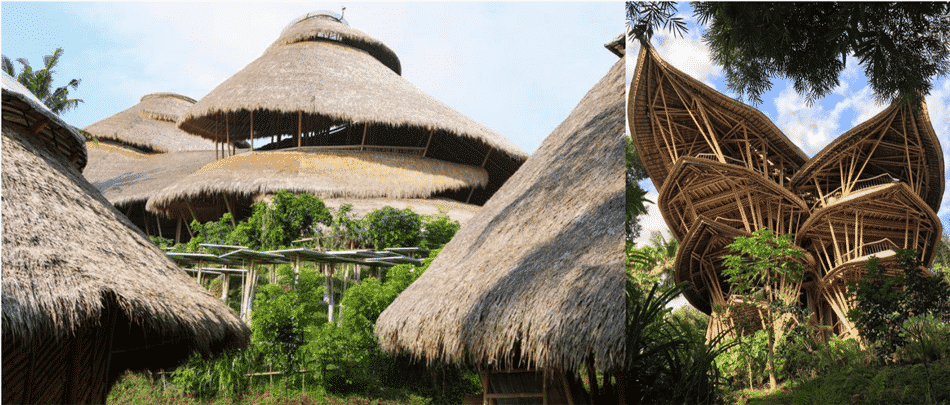
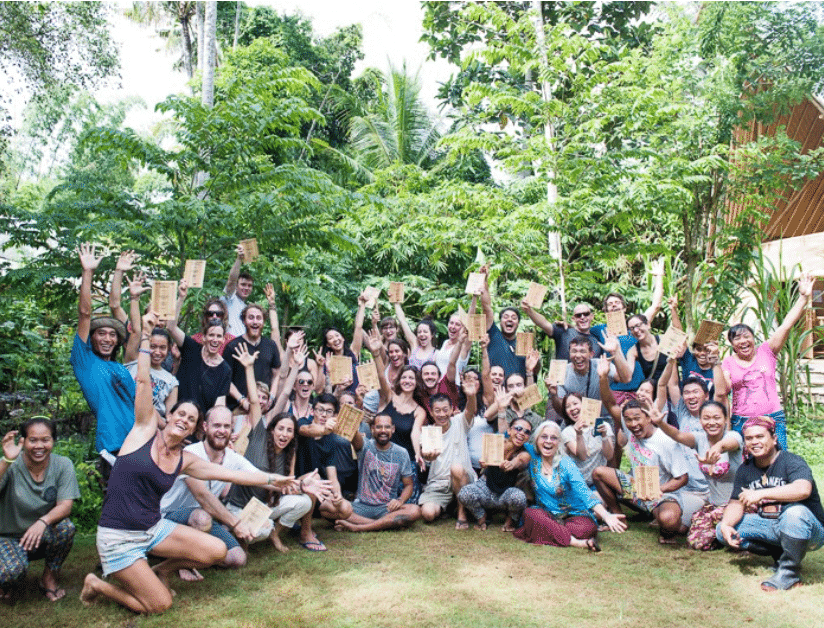
WHERE YOU’LL STAY
Your ticket includes a shared boutique camping experience on the farm, in our new rustic bamboo yurts. Upgrades on accommodation for a shared room in our bamboo bunkhouse are also available. The bunkhouse option costs US$170 for the 2 weeks, and this upgrade can be selected upon booking. All participants are encouraged to stay on site during the course. Both accommodation options include composting toilets and warm outdoor showers.
WHAT YOU’LL EAT
During the course you will eat like a king, or at least a vegetable king. We do our best to provide quality local ‘off the land’ ingredients to make delicious meals. We cater to vegetarians, vegans & people who don’t eat wheat or gluten.
YOUR TEACHERS
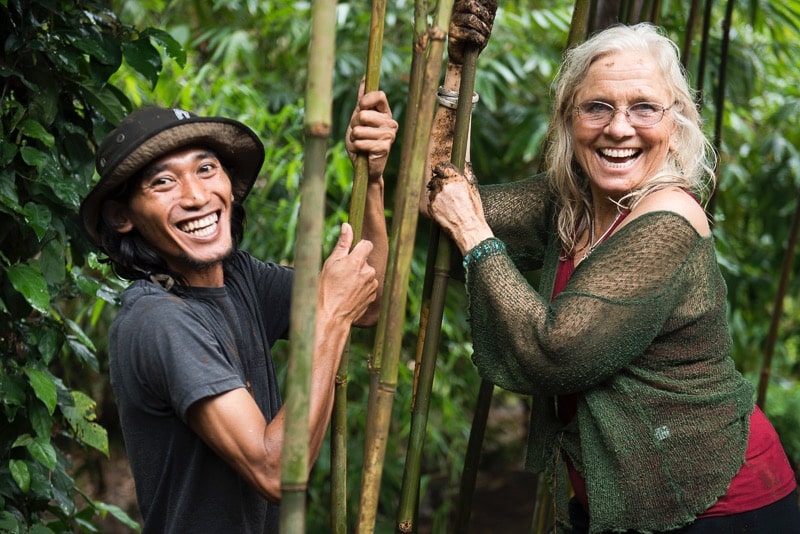
Penny Livingston-Stark is internationally recognized as a prominent permaculture teacher, designer, and speaker. She holds a MS in Eco-Social Regeneration and a Diploma in Permaculture Design. Penny has been studying the Hermetic Tradition of alchemy and herbal medicine making in Europe and the United States for 4 years. Penny has been teaching internationally and working professionally in the land management, regenerative design, and permaculture development field for 25 years and has extensive experience in all phases of ecologically sound design and construction as well as the use of natural non-toxic building materials. She specializes in site planning and the design of resource-rich landscapes integrating, rainwater collection, edible and medicinal planting, spring development, pond and water systems, habitat development and watershed restoration for homes, co-housing communities, businesses, and diverse yield perennial farms. She currently co-manages a permaculture education center on the Northern California coast with her husband James Stark. Penny also has experience in installing abundant and diverse tropical agroforestry systems.
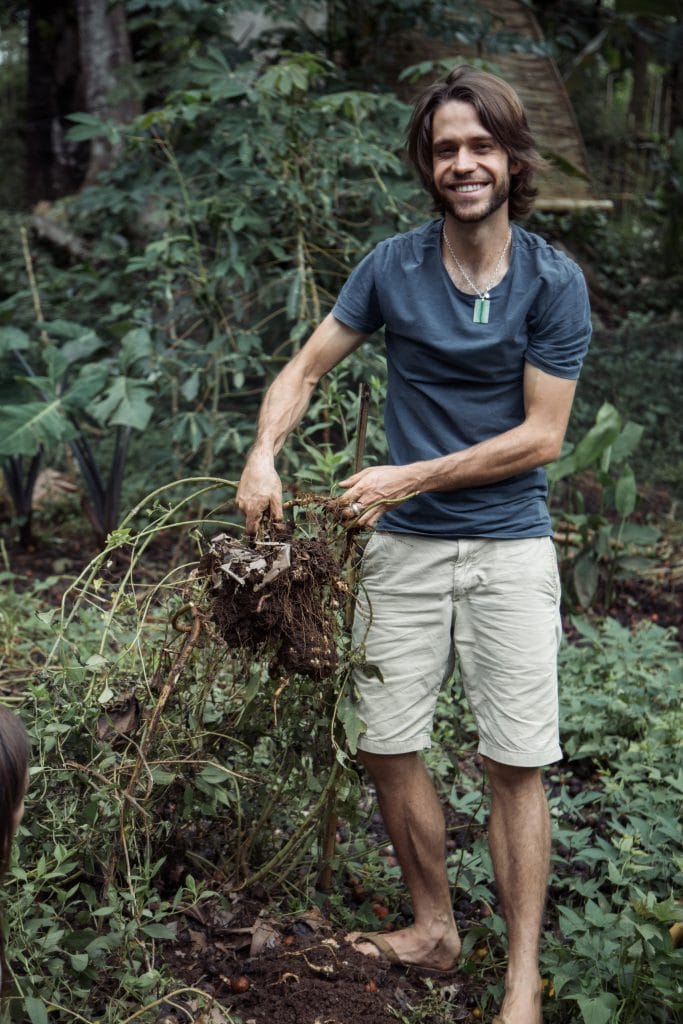 Orin Hardy was first introduced to Permaculture when he was 16 years old by Penny Livingston and her husband James Stark. Since then he has done Permaculture Design Courses with Dave Jackie at Milkwood, Penny Livingston and James Stark at the Regenerative Design Institute and Paul Taylor at Jambaroo Farms. After graduating from the Evergreen State College in Olympia Washington, he returned to Bali in 2012 and started IBUKU Gardens, a landscape design group that is part of IBUKU. He and his team completed over 20 permaculture design projects in Bali. His most recent project was for the Sumba Hospitality Foundation on the island of Sumba. The Kul Kul Farm is a culmination of his years of studying permaculture and implementing regenerative food systems and exploring its relationship to people and communities.
Orin Hardy was first introduced to Permaculture when he was 16 years old by Penny Livingston and her husband James Stark. Since then he has done Permaculture Design Courses with Dave Jackie at Milkwood, Penny Livingston and James Stark at the Regenerative Design Institute and Paul Taylor at Jambaroo Farms. After graduating from the Evergreen State College in Olympia Washington, he returned to Bali in 2012 and started IBUKU Gardens, a landscape design group that is part of IBUKU. He and his team completed over 20 permaculture design projects in Bali. His most recent project was for the Sumba Hospitality Foundation on the island of Sumba. The Kul Kul Farm is a culmination of his years of studying permaculture and implementing regenerative food systems and exploring its relationship to people and communities.

